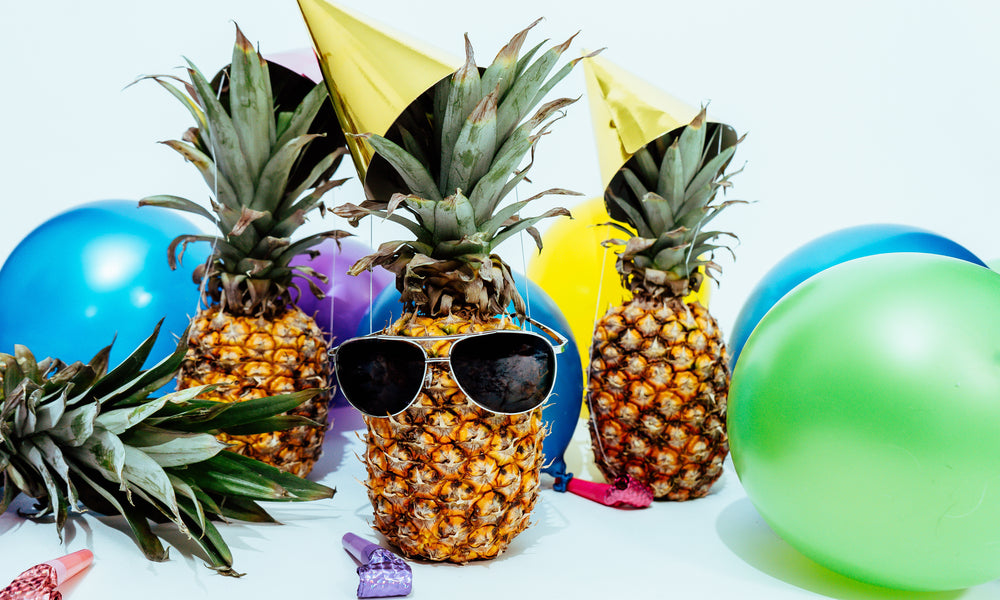
This blog is inspired by the culmination of almost every conversation I’ve had in the last seven days that I strongly suspect many of my readers will relate to. It goes like this –
Me: “Hi, how are you?”
Friend: “I’m sooooo [insert word associated with being crazy-busy-stressed-hectic-overloaded etc]”
It’s hard to escape that we’re in the thick of that time of year. The time when everything we’ve been working on for the last 11 months is due, when we "must" catch up with everyone (even those we don’t like), and when presents expressing the depth of our love for those we do care about must be thought of, purchased, wrapped and delivered in a thoughtful and timely manner that truly, perfectly, heartfully expresses the depth of that love.
One friend I spoke to told me she has a hideous sinus infection, but no time to visit a doctor because she has at least one event to attend every day before Christmas, in addition to her normal very full life-load.
Now, I’m no health-saint. Between wrapping up the shoot for my new film, wrapping-up the year at various parties, and wrapping up presents for teachers, colleagues, friends and family, it’s certainly busy in the Harvey house. But as someone with an autoimmune disease which flares during times of stress, I know that I’m particularly vulnerable in the silly season.
So, in the name of getting to January 2 and not feeling like I’ve been hit by a truck, here are three things I’m doing to manage my wellbeing.
1. I’m sticking to my healthy diet
As I wrote in my piece Why "Everything In Moderation” is a Bad Idea, I think there’s a fundamental flaw in the concept of “moderation” because our set-point is skewed by food company advertising, what others around us are doing, environmental influences such as the size of our dinner plates, and even our own preferences. In other words, “moderation” is ambiguous and wildly subjective.
My own moderation set-point was significantly readjusted earlier this year when I wrote about a paper commissioned by the National Confectioners Association (the leading association for the $35 billion U.S. confectionery industry). If you’d like reminding, here’s a picture I took of what “Big Candy” considers to be an acceptable daily portion of chocolate. (Hint: It's the bit on the right, not the left.)
2. I’ll be getting enough sleep
Regular readers will know that I’m a huge advocate for sleep. When I’m not sleeping enough, the fibromyalgia that comes with my illness is unquestionably worse. With recent research linking poor sleep to many chronic diseases and demonstrating that lack of sleep may have not only been one of the causes of my autoimmune disease, but that it also exacerbates my symptoms, I now make sleep one of my top priorities.
I took Ludwig-Maximilian University Professor, Till Roenneberg’s advice and did a simple experiment to find out how much sleep I need to function well and feel good. I’m a nine-hour a night person, which is far from conducive to late-night Christmas bashes, and present-wrapping all-nighters.
Between my small children, my weakness for Scottish highlanders, and my fathomless To Do list, my sleep needs are in serious jeopardy at this time of year. So I’ll be tag-teaming with my husband and sharing the early-morning kid-wrangling load after late nights, and doubling down on my sleep rituals including banning blue-light from digital devices an hour before bed.
3. I’ll be mindfully merry
Is it just me or does the modern version of the festive time seem completely out of whack with the intentions of its origin? Just as we’ve successfully navigated the charged emotional minefield of work and family gift-giving, we hurtle straight into sale season and are implored to rid the world of unwanted leftovers at bargain prices.
When researchers set out to study “What Makes a Merry Christmas” I wasn’t surprised to read that the material aspects of the holiday season may be undermining our wellbeing. In the study, more happiness was reported when family and religious experiences were especially meaningful. It turns out, all those quirky rituals we have do actually play an important role in providing togetherness and feelings of closeness and belonging.
Don’t get me wrong, I’m not anti gift-giving. That warm fuzzy feeling you get when you give a thoughtful gift to someone is called “prosocial spending” and it’s associated with greater happiness around the world. The good news is that how much you spend on someone doesn’t matter. It really is the thought that counts.
Now that I’m a mother I’ve learned that the annual letter that I wrote to Santa as a child had a highly practical function for my parents. It meant that on Christmas morning I didn’t open foot spas and name embroidered bath robes. This year I’ve done a some subtle and not so subtle investigative journalism before buying gifts for my loved ones. The added bonus is that almost everything has been available online and so far, there has not been a single epic battle for a mall parking space.






 The Connection (DOWNLOAD-TO-OWN)
The Connection (DOWNLOAD-TO-OWN) My Year Of Living Mindfully - Book
My Year Of Living Mindfully - Book




